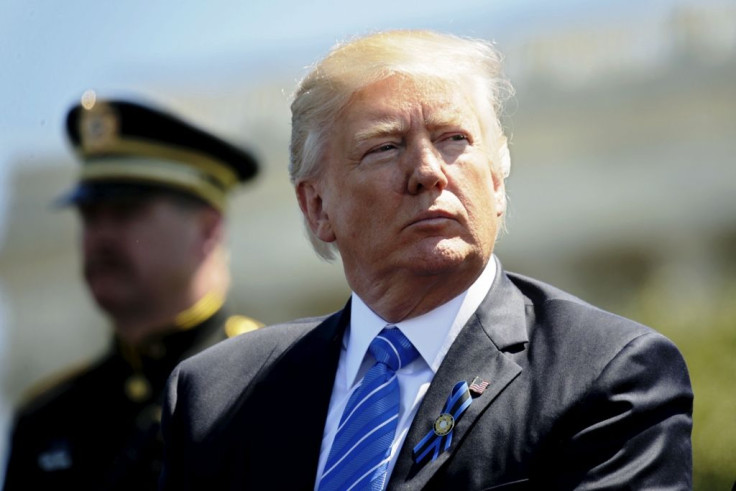Trump To Address Muslim Leaders In Saudi Arabia: 5 Anti-Muslim Comments By The President

Donald Trump will address dozens of Muslim leaders on “hopes for a peaceful vision of Islam” during his first foreign trip as president, National Security Advisor H.R. McMaster said Tuesday. This comes after the president was criticized several times for his anti-Muslim rhetoric and travel ban on Muslim majority countries.
Trump’s first official trip abroad will begin with Saudi Arabia where he is scheduled to arrive March 19 in Riyadh. McMaster called Trump’s visit a “historic trip” and said the president will attend a gathering of around 50 Muslim leaders from across the world in Saudi Arabia, following talks with King Salman.
Read: Elizabeth Warren Says ‘Muslim Ban’ Will Aid ISIS Recruitment
"The speech is intended to unite the broader Muslim world against common enemies of all civilization and to demonstrate America's commitment to our Muslim partners," McMaster said, as reported by AFP.
The 70-year-old president will also talk about fighting radical Islam, according to McMaster. Trump will “deliver an inspiring but direct speech on the need to confront radical ideology and the president’s hopes for a peaceful vision of Islam to dominate across the world,” he said, according to the Independent.
Trump is known to have spoken against Muslims and Islam. In 2015, he also called for a “total shutdown” of Muslims to the U.S. On Jan. 27, just after assuming office, Trump signed an executive order temporarily banning immigration from seven Muslim-dominated nations — Iraq, Iran, Syria, Sudan, Libya, Somalia, and Yemen.
In February, several courts halted that order. The following month, the Trump administration sought to bring a revised order — this time dropping Iraq from the list. However, that order was also suspended by judges before it could go into effect March 16.
Following are the times Trump criticized Muslims.
- In July 2016, Trump shot back at Khizr Khan and Ghazala Khan, the Muslim-American parents of the deceased gold-star Army Captain Humayun Khan, for appearing at the Democratic Convention in support of Hillary Clinton. "I saw him. He was, you know, very emotional. And probably looked like — a nice guy to me. His wife, if you look at his wife, she was standing there. She had nothing to say. She probably — maybe she wasn't allowed to have anything to say."
- Trump also compared his sacrifices to those of the Khans. "I think I've made a lot of sacrifices. I work very, very hard. I've created thousands and thousands of jobs, tens of thousands of jobs, built great structures. I've had tremendous success. I think I've done a lot," he was reported saying by ABC News.
- In June 2016, the then presumptive GOP nominee Trump said it was "absolutely" possible a Muslim judge would treat him unfairly after his call for banning Muslims from the U.S. “It's possible, yes. That would be possible, absolutely,” Trump said.
- On Dec. 7, 2015, Trump called for banning Muslims from the U.S. "Donald J. Trump is calling for a total and complete shutdown of Muslims entering the United States until our country's representatives can figure out what is going on. According to Pew Research, among others, there is great hatred towards Americans by large segments of the Muslim population," he said in a statement at the time. However, earlier this month, Trump’s campaign website took down the statement after a reporter asked about it.
- In November 2015, Trump falsely claimed Muslims in New Jersey cheered for the 9/11 terrorist attacks. "I watched when the World Trade Center came tumbling down. And I watched in Jersey City, New Jersey, where thousands and thousands of people were cheering as that building was coming down. Thousands of people were cheering," Trump said.
© Copyright IBTimes 2025. All rights reserved.






















